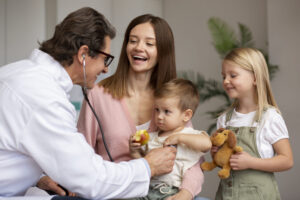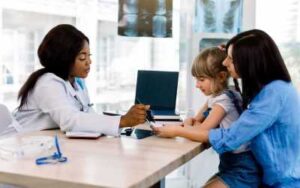Brazil, a vast South American country, stretches from the Amazon Basin in the north to vineyards and massive Iguaçu Falls in the south. Rio de Janeiro, symbolized by its 38m Christ the Redeemer statue atop Mount Corcovado is famed for its busy Copacabana and Ipanema beaches as well as its enormous, raucous Carnaval festival, featuring parade floats, flamboyant costumes, and samba music and dance..
Recommended Travel Vaccinations For Brazil
| VACCINE | HOW DISEASE SPREADS | PREVENTIVE ACTIONS |
| Hepatitis A | You can get hepatitis A through contaminated food or water in Brazil,regardless of where you. | Get vaccinated.Eat and drink safely |
| Rabies | You can get Rabies from the Saliva of the infected animals. | High risk country Vaccine recommended for long- term travelers and those who may come in contact with animals |
| Yellow Fever | You can get yellow fever through Mosquito. Note: Recommended for all regions except Fortaleza and Recife. | Get vaccinatedPrevent mosquito bites |
| Typhoid | You can get Typhoid through contaminated food or water in Brazil. Specially if you are traveling in rural areas. | Get vaccinatedEat and Drink safely |
Routine Vaccinations For Brazil
| VACCINE | HOW DISEASE SPREADS | PREVENTIVE ACTIONS |
| Measles, Mumps and Rubella Vaccination (MMR) | Measles, mumps, and rubella are viral diseases.Measles starts as a fever, cough, runny nose, conjunctivitis (pinkeye), and a red, pinpoint rash that starts on the face and spreads to the rest of the body.The mumps virus usually causes swelling in glands just below the ears, giving the appearance of chipmunk cheeks.Rubella is also known as German measles. It can cause a mild rash on the face, swelling of glands behind the ears, and in some cases, swelling of the small joints and low-grade fever. | Get vaccinated.Avoid sharing contacts with infected people.wash your hands using soap. Avoid infected person coughs, sneezes or even talks |
| Pneumonia (Pneumococcal) Vaccination | Pneumonia is a lung infection that can affect people of all ages.But the two age groups at highest risk are: Children who are 2 years old or younger People who are age 65 or older. Common symptoms for pneumonia are: cough, fever, nasal congestion and shortness of breath.Many germs can cause pneumonia. The most common are bacteria and viruses in the air we breathe. | Get vaccinatedPractice good hygieneAvoid SmokingKeep your immune system strong |
| Hepatitis B | You can get hepatitis B through sexual contact, contaminated needles, and blood products, so CDC recommends this vaccine if you might have sex with a new partner, get a tattoo or piercing, or have any medical procedures. | Get vaccinatedAvoid sharing body fluidsAvoid non sterile medical or cosmetic equipment |
| Influenza (Flu) Vaccine | This is a viral infection that spreads from person-to-person. Everyone over six months old should receive an annual flu vaccination. | Get VaccinatedAway from people who are infected cough or sneeze |
| Chickenpox (Varicella) Vaccination | Chickenpox is a highly contagious infection caused by the varicella-zoster virus. It causes a blister-like rash across the body.Chickenpox can spread from someone with shingles to other who has never had the disease. This happens if a person touches or inhales droplets of the shingles blisters. | Get VaccinatedAvoid touching body fluidsAvoid contacting with the blisters |
| Polio Vaccination | Polio (poliomyelitis) is a potentially deadly, life-altering disease. The virus enters the body and attacks the brain and spinal cord, often causing paralysis. | Get vaccinated Avoid sharing contacts with infected people Avoid contaminated food or water, though sneezes or coughs can transmit the virus |











